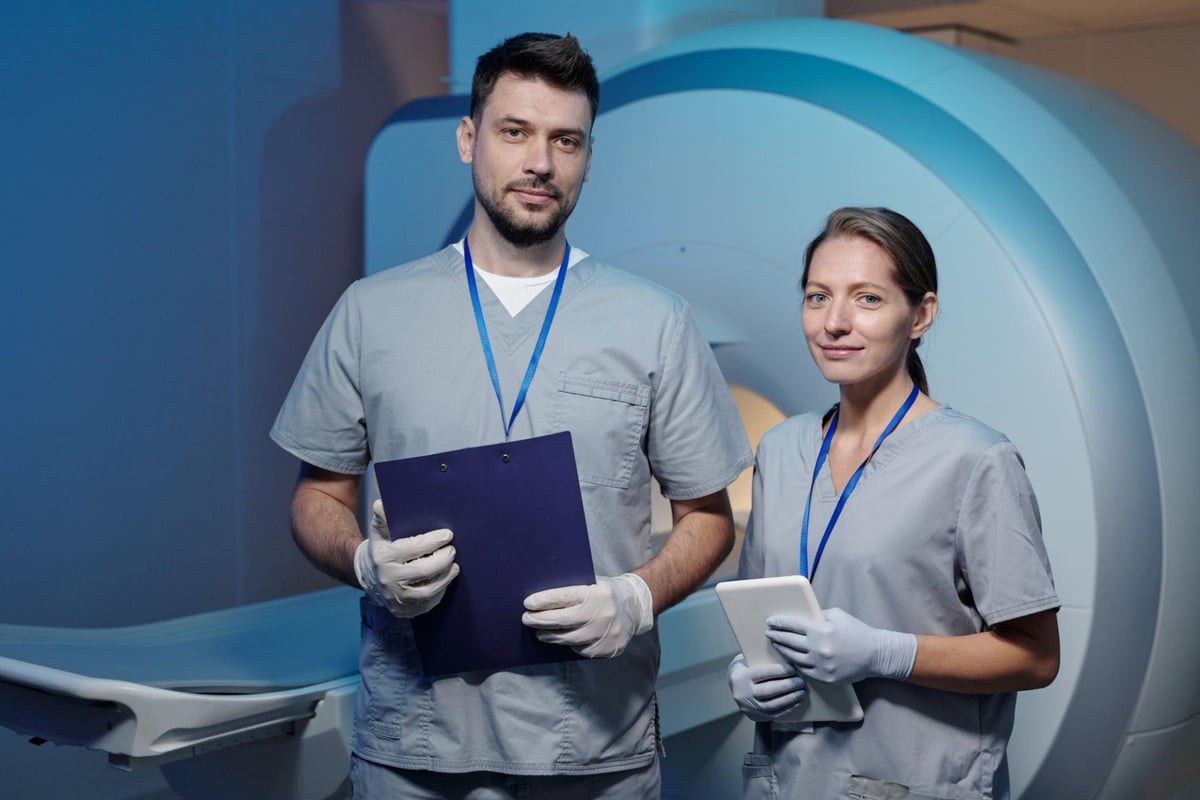Radiology Technician classes near me

Radiology technician certification classes are one of Dreambound's most popular offerings. A radiology technician is a healthcare professional trained to operate imaging equipment such as X-ray machines, CT (computed tomography) scanners, MRI (magnetic resonance imaging) machines, and ultrasound equipment. While some may find the program demanding, the rewards are boundless and the hard work will undoubtedly pay off in fulfilling career opportunities. Find Radiology Technician training programs near your area today!
Explore the reasons why Dreambound comes highly recommended by Keasha Ellis: "I really appreciate the program they have going on. I like how they submit information to you and let you know the things that you need, as well as the opportunities that align with your goals to better your life. Thank you so much for this, Dreambound."
Article continues after recommendations
Recommended for you
Learn more about the Radiology Technician certification
How to become a Radiology Technician
Each state has different requirements, but typically, a high school diploma or GED is required to become a radiology technician. You need to enroll in an accredited training program and gain clinical experience, where you will work hands-on with imaging equipment under the supervision of experienced technologists. It's important to research the specific requirements in your area, as they can vary by location. Additionally, gaining relevant experience through internships or volunteer work can enhance your chances of securing a job in the field.
If you're considering a career as a radiology technician, you might be curious about the feasibility of beginning your journey while still in high school. Learn more about How to Become a Radiology Technician in High School? in this blog post.
What does a Radiology Technician do?
Radiologic technologists, also referred to as radiographers, conduct x-rays and various diagnostic imaging tests on patients. Their responsibilities include adjusting and maintaining imaging equipment, following precise instructions from physicians, and positioning patients on the imaging table to ensure their comfort and proper alignment for the procedure. Additionally, they work closely with radiologists and other healthcare professionals to analyze and interpret images, and accurately maintain patient records documenting the imaging procedures performed.
How long does it take to become a Radiology Technician?
The duration to become a certified radiology technician can vary based on several factors, such as the chosen training program and pursuit of additional certifications. Typically, radiology technician classes take approximately 2 years to finish. Following the educational phase, hands-on experience is gained through a clinical internship or externship. Upon completion of both education and clinical training, certification is required to practice as a radiology technician. The time required to prepare for and pass the certification exam may vary, generally ranging from 3 to 6 months.
Where can a Radiology Technician work?
Radiology technicians can find employment in a variety of healthcare settings. Most of them work in hospitals. Radiographers can also be found at diagnostic imaging centers and physician's offices. Some may consider working at urgent care centers and research facilities.
Get courses selected just for you
Try our powerful search engine
How much does a Radiology Technician make?
The average salary for radiology technicians can vary depending on factors such as experience, location, and education. However, according to the Bureau of Labor Statistics (BLS), the median annual wage for radiologic technologists was $65,140 as of May 2022. This means that half of all radiology technicians earned more than this amount, while the other half earned less. The lowest 10 percent earned less than $47,760, and the highest 10 percent earned more than $97,940.
Radiology Technician classes by City
In order to help you find a radiology technician class, at Dreambound, we've gathered the most comprehensive list of radiology technician classes in the US. Below, you can find a list of radiology technician classes, organized by city. If you don't see your city listed, you can always search by zip code.
How to become a Radiology Technician
We know taking the first step to becoming a radiology technician can be scary. That's why we're trying to demystify the process by writing guides on how to become a radiology technician. Since State process or requirements may vary, we've written separate guides for each state:
Exploration of Radiology Technician versus other programs
Considering other programs? Read our guides on Radiology Technician versus other similar programs in field, providing a comprehensive overview to assist you in making the right choice for your career path.

Alyssa Jane is part of the customer success team at Dreambound. She works with students, training providers, and employers, helping them have a smooth customer journey. She is also an ESL tutor and Licensed Psychometrician. She is fond of traveling, photography, and discovering new restaurants.





